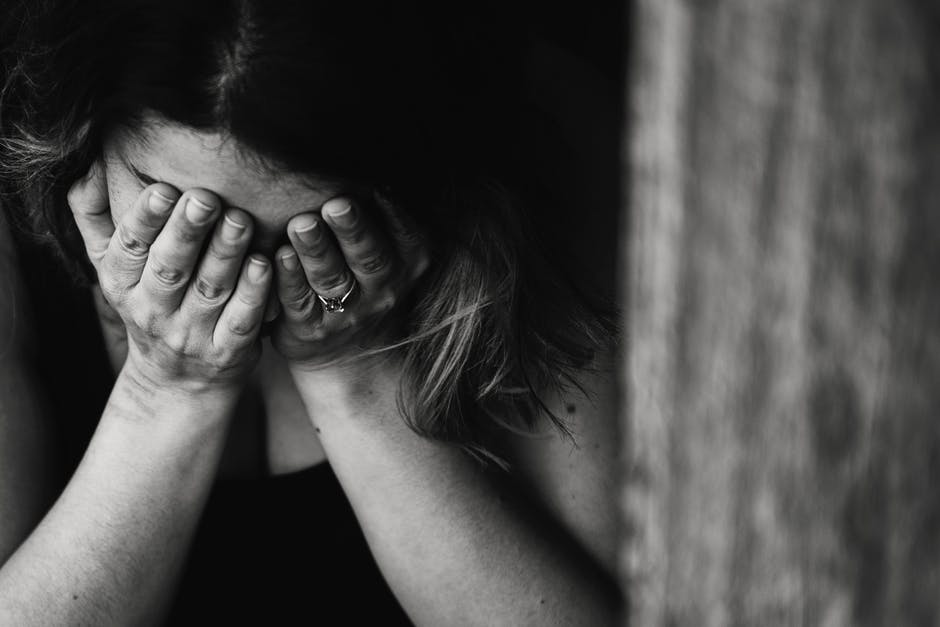
Mental Health
Mental health has seen a special emphasis in the medical world over the last few years. Mental Health awareness, or lack thereof, can affect many aspects of an individual’s life.
But where does negative mental health come from? It can stem from several things, but none more than mental and physical trauma.
If you have experienced these in the past, it can affect your mental health in the future. Here are five ways how it can.
Effects of Trauma on Mental Health
An individual can experience one or more of these effects, but they are all just as concerning. If you have any of these, be sure to consult a professional
Post Traumatic Stress Disorder (PTSD)
One of the major ways trauma affects people is PTSD. Individuals will suffer for a long time after their traumatic experience. Often the trauma will manifest through nightmares or flashbacks.
This can cause sleepless nights, panic attacks, emotional numbing, and many of the others on this list.
Behavioral Change
This and drug abuse may go hand-in-hand, but when suffering from a traumatic event, individuals will try to escape the memories by engaging in behaviors they previously did not do.
This can be as simple as excessive eating or as high-risk as unprotected sex with strangers.
Drug Abuse
Some of the other high-risk behaviors include alcohol and drug abuse.
In the short term, this makes them more susceptible to endangering themselves and overdosing. In the long term, this can destroy their lives and cause loved ones to suffer as well.
Drug abuse can compound with PTSD and cause more depression to develop.
Depression
traumas can cause depression, where the individual experiences feelings of anxiety, hopelessness, and despair. And this symptom is shockingly common; over two million youth in America suffer from crippling depression.
Often this can be from childhood trauma or dealing with various mental traumas that develop throughout their life. Depression can be the cause of suicidal thoughts and tendencies.
Suicidal Tendencies
According to the World Health Organization (WHO), there are 800,000 suicides every year, or a suicide every 40 seconds.
Although this does not specify the amount are due to responses to traumatic situations, one can infer that many are due to this very same thing.
WHO also stated that every one in nine people who live in traumatic settings affected by conflict develops moderate to severe mental disorders.
When applied to Americans, it’s staggeringly higher. Over 10 million adults in the US have suicidal thoughts.
Beat The Odds Of Your Trauma
All these are side effects of physical and mental trauma on your mental health, but they are not always surefire responses to the traumas. If you find help, these can be handled effectively or even avoided altogether.
We at the AJ Therapy Center believe in you and we can help you get through any of the effects associated with trauma.
If you have any questions or if you need help with dealing with your traumas you can contact us here. We are always here to help.

Mental Health
Over 10 percent of people in the world have a diagnosed mental health disorder. The figures for those that are affected by mental health issues at some point in their lives are likely to be considerably higher.
There are many ways that you can work on developing good mental health, one of the best ways of finding mental stability is counseling.
Counseling is something that can benefit many people, even those that don’t experience severe mental health conditions. Given the importance of mental health, counseling a service that anyone should access to help them with their own mental growth.
Here are five amazing ways that counseling can help you with your mental growth.
1. Counseling Helps Mental Growth By Developing Goals
When you sit down with your counselor, you’ll have an idea of what you hope to gain from the process. Together you can sit down and work on developing goals for improving your mental health.
Your counselor will be able to view your problems objectively. They will also have a good idea of what you could gain from counseling and they’ll be able to help you come to some decisions regarding achievable goals.
2. Counseling Helps You Feel Stronger
You may not feel strong when you first enter therapy, however, the process can be very beneficial. It takes a deep inner strength to admit that you need someone else’s help in your life to address the things you’re struggling with.
Over time, counseling will give you the strength and resilience to be able to handle challenges in your life.
3. Counseling Helps You to Be More Accepting of Your Situation
While there may be plenty that you can do to change your outlook and approach in life, there will be things that you cannot change. Ordinarily, these issues may cause you some distress or anxiety, however, counseling can help you to accept these things.
There may be issues in your past that may be unresolved. Working through these issues with a counselor can help you come to terms with this situation.
4. Counseling Helps You Keep Going
Sometimes when you’re struggling with your mental health issues, it can all seem too much. You may feel overwhelmed by the problems that you are facing.
Speaking with your counselor can help you to unburden of all of these worries. Having a calm and objective counselor to provide you with support when you need it most can help you in the times when you most need someone.
5. Counseling Helps Your Learn to Take Care of Yourself
Self-care is essential in developing positive mental health habits. Sometimes it can be a challenge getting into a good self-care routine. A counselor will be able to help you to find a routine that works for you.
Getting the Help That You Need
Counseling can be a long process, however, for many, it is one of the most beneficial ways of dealing with their mental health problems.
At AJ Therapy Center we understand the significance of mental health. We provide a range of case management services that make seeking help for your mental health concerns easier.
Get in touch today to find out how we can with your mental growth.

Mental Health
Unfortunately, there is a lot of shame and stigma attached to mental health. However, according to the World Health Organization, one in four people will be affected by mental health problems at some point in their lives.
Many people will hear the words “pull yourself together” or think that they’re not “crazy” enough to need therapy. But sadly, the stigma that surrounds mental health issues puts many people off from getting the help that they truly need and deserve.
Seeking help takes strength. It is not a weakness. If you feel as though you’re struggling with depression, anxiety, or a myriad of complex mental health problems, don’t be afraid to reach out. There are people there who can help.
Here are five reasons seeking help for mental health is a strength, not a weakness.
1. By Seeking Help You Will Understand Yourself Better
When you seek out mental health treatment there are several paths you can follow. One of the most effective in the long-term is talking therapy.
By seeking help from a therapist, you’ll get to know things about yourself. You’ll uncover aspects of your psyche that might have been holding you back. Through counseling, you’ll be able to better understand who you are as a person.
2. It Takes Courage to Reach Out
Getting help with your mental health problems is not a weakness. Reaching out in the first place will take a lot of strength and will-power on your part.
It is natural when seeking help for mental health issues to worry about what others may think of you. But the ultimate act of bravery is to admit that you’re struggling with something that is bigger than you can deal with alone.
3. Change is Never Easy
If you want to learn to manage the effects of mental health issues on your life, then it could take a long time. During that time, you will struggle. But if you keep turning up and trying to make positive changes in your life, the change will come.
It takes strength and persistence to push yourself through.
4. Your Mental Health is as Important as Your Physical Health
Mental health problems are quite often overlooked by science and the medical profession. This leads people to think that mental health problems are in some way less important than physical health problems.
They’re not.
Mental health problems should be treated equally to physical health problems. In fact, many mental health problems will have a physical effect on you too.
5. Because You’ve Had to Fight Stigma as Well as Your Illness
One of the hurdles that many people have to leap before they even start getting help for their illness is the social stigma attached to mental health issues.
Because you’ve already had to fight these notions before getting help makes you a strong person.
Reach Out For Help Today
Dealing with your mental health problems by getting the help that you deserve is in no way a sign of weakness.
At AJ Therapy Center we understand the importance of mental health. We offer a wide range of case management services which make seeking help for your mental health concerns that much easier.
Get in touch today to find out how we can help.



